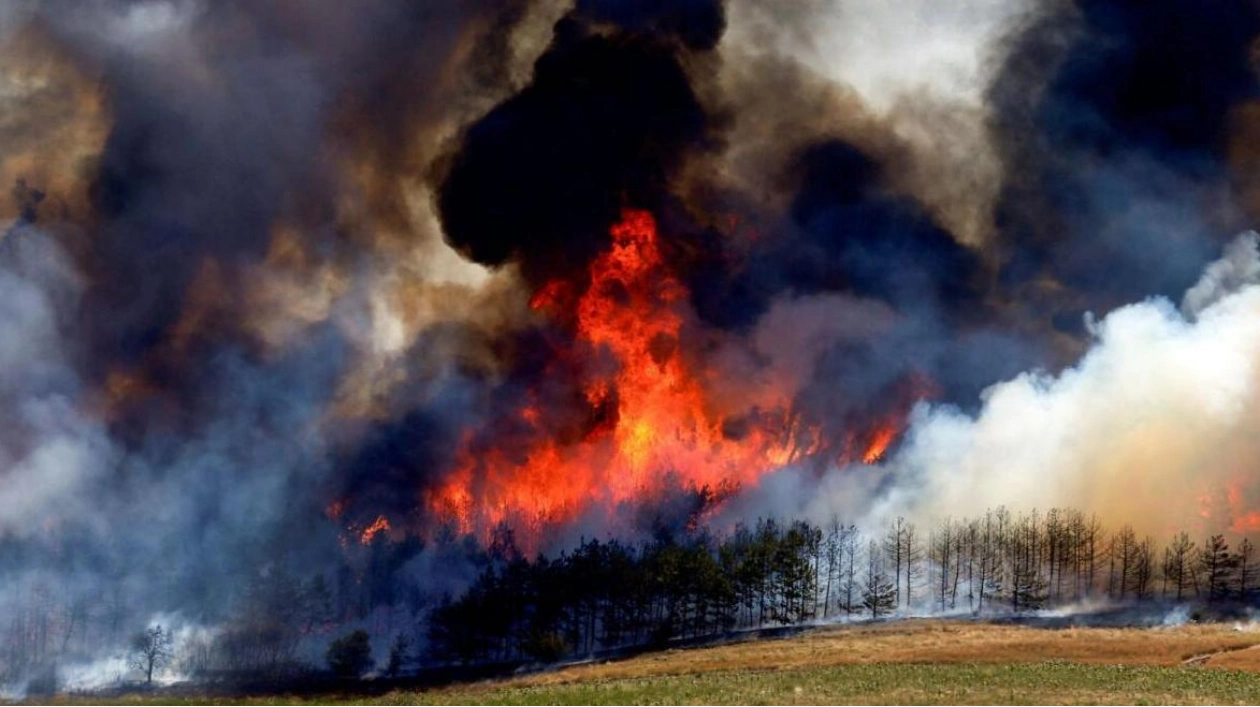On Wednesday, firefighters in North Macedonia battled a dozen wildfires that were exacerbated by strong winds for the third consecutive day. Officials reported that high temperatures and dry conditions also ignited smaller fires across Greece and the Balkans. Goran Stojanovski from North Macedonia's crisis management center noted that one fire was advancing in the Negrevo municipality near the Bulgarian border, and another was spreading around Kumanovo near Serbia. "Due to the intense heat, the vegetation is parched and the soil is extremely hot, complicating our efforts," Stojanovski explained. Greece, North Macedonia's southern neighbor, has grappled with wildfires due to increasing temperatures and infrequent rainfall, a situation scientists attribute to climate change. This week, a series of fires also erupted across the Balkans after prolonged heat and minimal rain. In mainland Europe's west, Spanish firefighters are also combating wildfires amidst extreme heat.
Smoke enveloped roads, fields, and houses near the central town of Stip, located 100 kilometers east of North Macedonia's capital, Skopje, according to a Reuters witness. The overall damage across the country remains uncertain. Earlier in the week, fires destroyed numerous homes and claimed the life of an elderly man. Stojanovski mentioned that out of 66 active fires on Tuesday, 12 were still uncontrolled on Wednesday. A helicopter from Serbia was deployed to assist, and Germany and the Czech Republic have offered aircraft support. In neighboring Albania, the coastal tourist town of Shengjin was evacuated on Tuesday as fires approached, prompting some tourists to depart hastily by car and bus. Although fires continued to burn there on Wednesday, they seemed to be under control, according to a Reuters witness.
In Croatia, firefighters managed to contain a fire near the coastal town of Tucepi, as reported by a local official on N1 TV. At a mountainous region along the Greece-Bulgaria border, firefighters utilized aerial support to extinguish flames from a fire that had been consuming low-lying vegetation since July 18. Greek fire service spokesman Vassilis Vathrakogiannis explained that ground forces could not access the area due to landmines from past conflicts. Firefighters and local authorities have employed excavators to create firebreak zones around villages.






